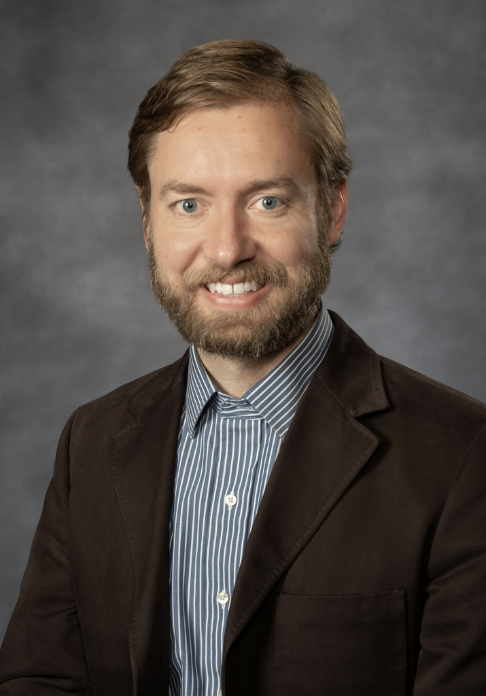PMDC conducting its first PSP clinical trial aiming to address patient symptoms
By Sean Gorman
Progressive supranuclear palsy (PSP) leads to rapid neurodegenerative decline in patients. With no treatment to slow or stop its fast progression currently available, patients and their care teams fight to manage various symptoms that often are not alleviated by current medications.
 One of the assets the PMDC brings to the trial is that it already treats PSP patients who are seen as part of a monthly clinic in Short Pump. This provides an opportunity for prospective participants to learn more about the study for potential enrollment, Barrett notes.
One of the assets the PMDC brings to the trial is that it already treats PSP patients who are seen as part of a monthly clinic in Short Pump. This provides an opportunity for prospective participants to learn more about the study for potential enrollment, Barrett notes.
He also shares that PMDC has been named a Center of Care by the CurePSP non-profit group — a designation that recognizes the VCU-based center as a place where patients with the disorder can get the best possible treatment.
“Those kinds of things put you on the radar for doing clinical trials,” Barrett says.
Roughly 5 in 100,000 people have PSP. It has no known cause, CurePSP says. Symptoms, which can include loss of balance, slurred speech, and difficulty swallowing, typically emerge when a patient is in their early 60s but can also show up in their 40s, the group says. There is no known cure.
In addition to the PMDC, a half-dozen centers around the U.S. are enrolling patients for the clinical trials and other sites in Europe and Japan might also take part in the future, according to Amylyx Pharmaceuticals, the company that developed the drug.
The PMDC is working to schedule screenings for patients to see if they will participate in the trial, and the center has already heard from about 15 people with PSP interested in being part of it, Barrett says.
That high level of interest is a sign better treatments are needed, Barrett says.
“My target is typically five patients for these interventional clinical trials,” Barrett says. “We are seeing a lot of enthusiasm from the patient community, and certainly we could enroll more.”
The Parkinson’s and Movement Disorders Center (PMDC) seeks to change that. An important clinical trial is ramping up that hopes to bring symptom relief to this complex patient population.
PSP, a condition in which patients can experience balance problems, falls, and eye movement abnormalities, tends to progress more rapidly than Parkinson’s disease, says Matthew Barrett, M.D., the principal investigator for the clinical trial at the PMDC.
Yet doctors tend to have few medications available to treat PSP manifestations, he adds.
“We have some treatments for symptoms, but they’re lacking and don’t address most of the patient’s symptoms,” says Barrett, a VCU associate professor of neurology. “It’s a group of patients who really need treatments that slow the disease.”
Barrett says the PMDC was selected at the end of 2023 to be part of the clinical trial, which is the the first PSP study the center has undertaken. Called the ORION Trial, it seeks to study a treatment called AMX0035 that strives to protect brain cells. Researchers will work to determine its safety and efficacy in slowing down symptoms.
One of the assets the PMDC brings to the trial is that it already treats PSP patients who are seen as part of a monthly clinic in Short Pump. This provides an opportunity for prospective participants to learn more about the study for potential enrollment, Barrett notes. He also shares that PMDC has been named a Center of Care by the CurePSP non-profit group — a designation that recognizes the VCU-based center as a place where patients with the disorder can get the best possible treatment.
“Those kinds of things put you on the radar for doing clinical trials,” Barrett says.
Roughly 5 in 100,000 people have PSP. It has no known cause, CurePSP says. Symptoms, which can include loss of balance, slurred speech, and difficulty swallowing, typically emerge when a patient is in their early 60s but can also show up in their 40s, the group says. There is no known cure.
In addition to the PMDC, a half-dozen centers around the U.S. are enrolling patients for the clinical trials and other sites in Europe and Japan might also take part in the future, according to Amylyx Pharmaceuticals, the company that developed the drug.
The PMDC is working to schedule screenings for patients to see if they will participate in the trial, and the center has already heard from about 15 people with PSP interested in being part of it, Barrett says.
That high level of interest is a sign better treatments are needed, Barrett says.
“My target is typically five patients for these interventional clinical trials,” Barrett says. “We are seeing a lot of enthusiasm from the patient community, and certainly we could enroll more.”